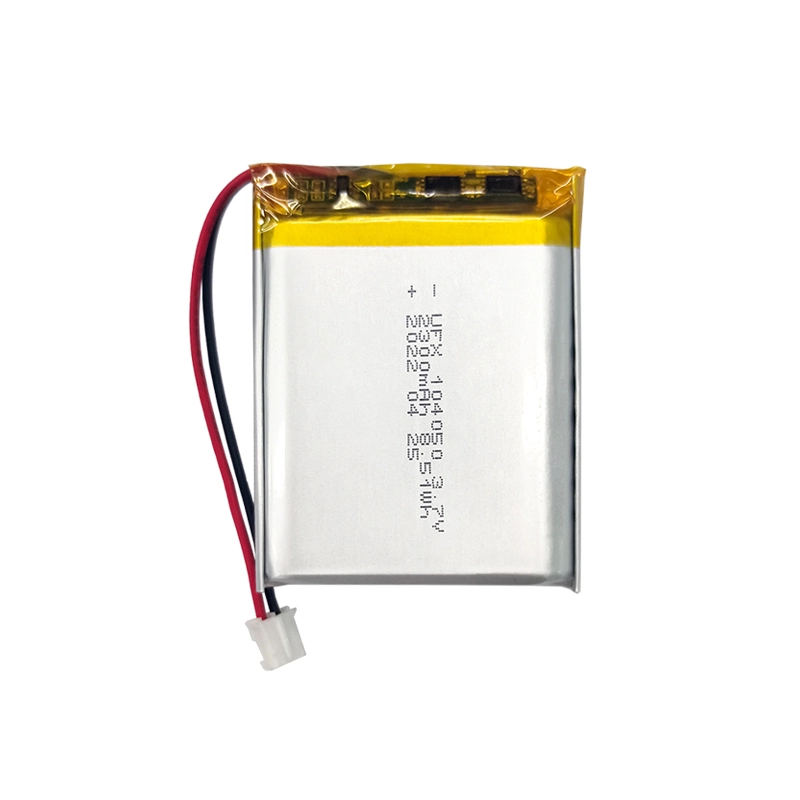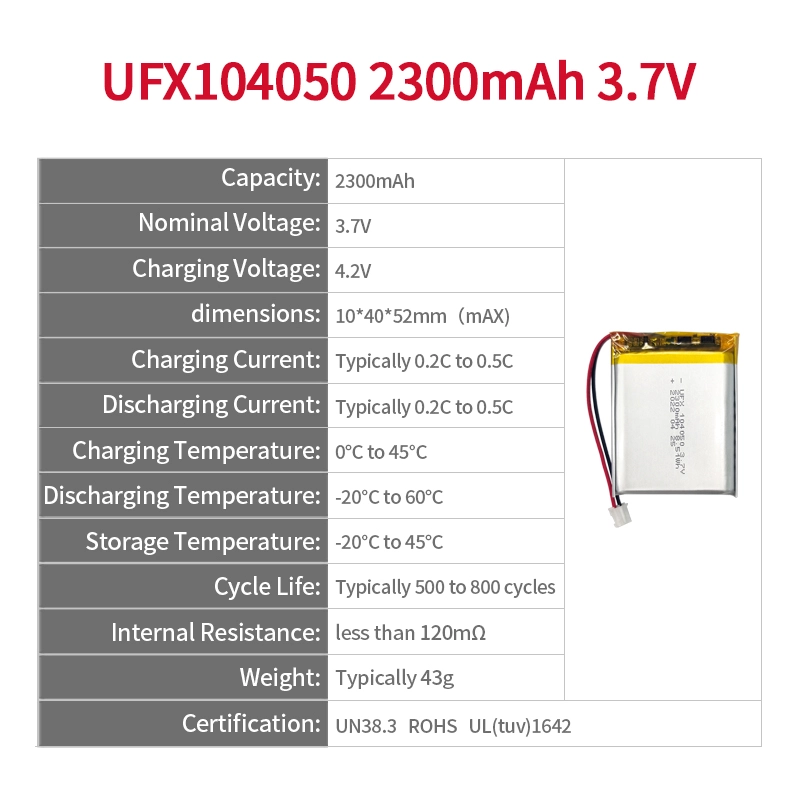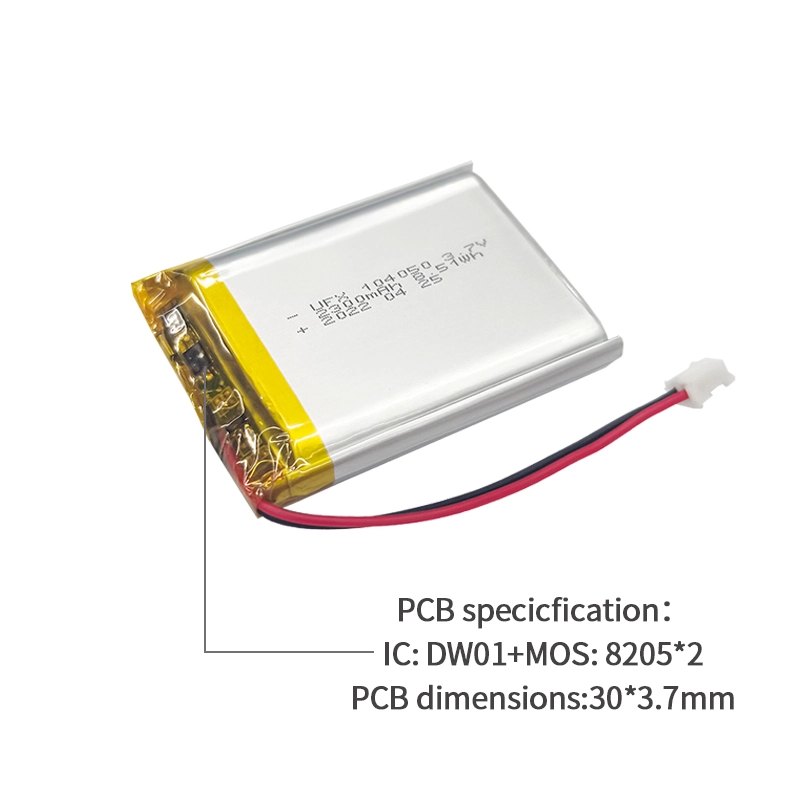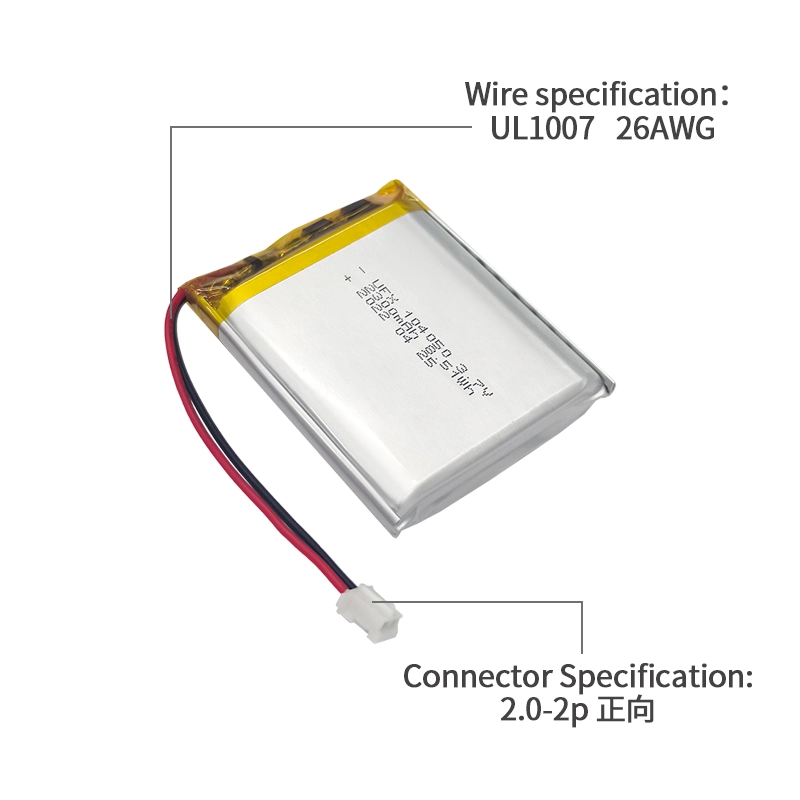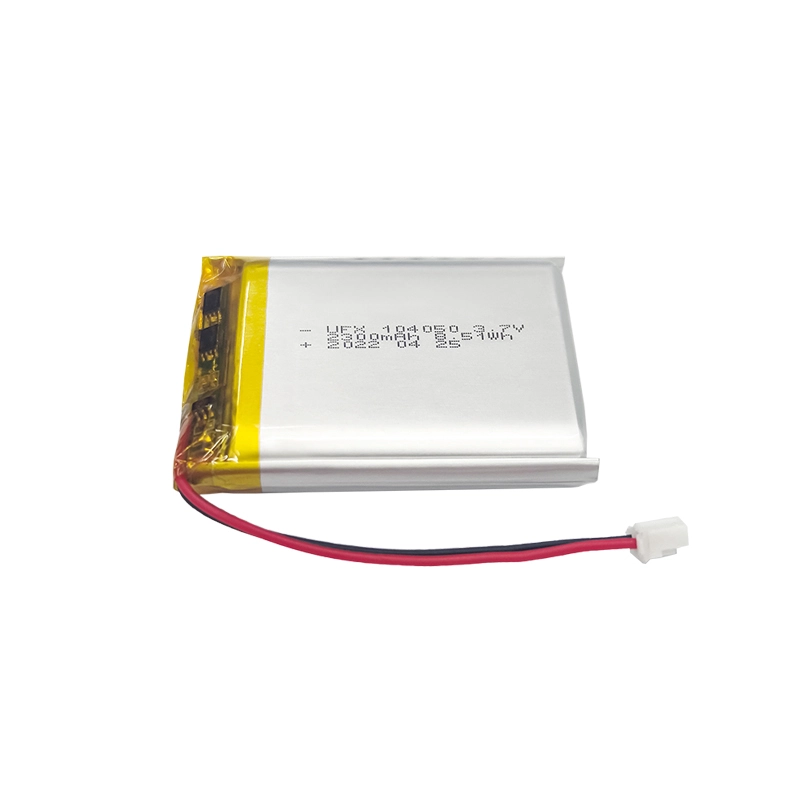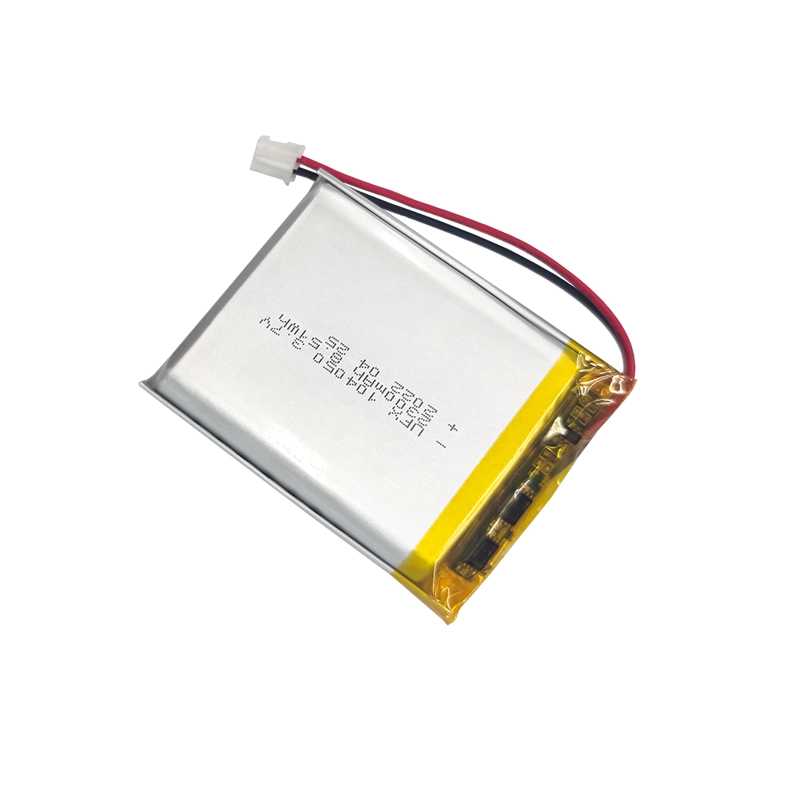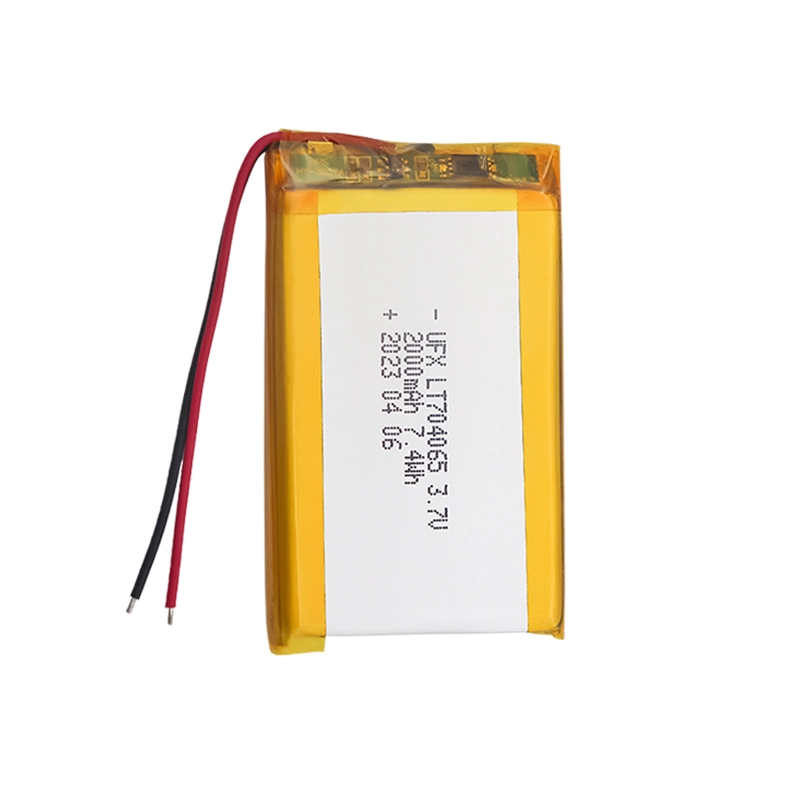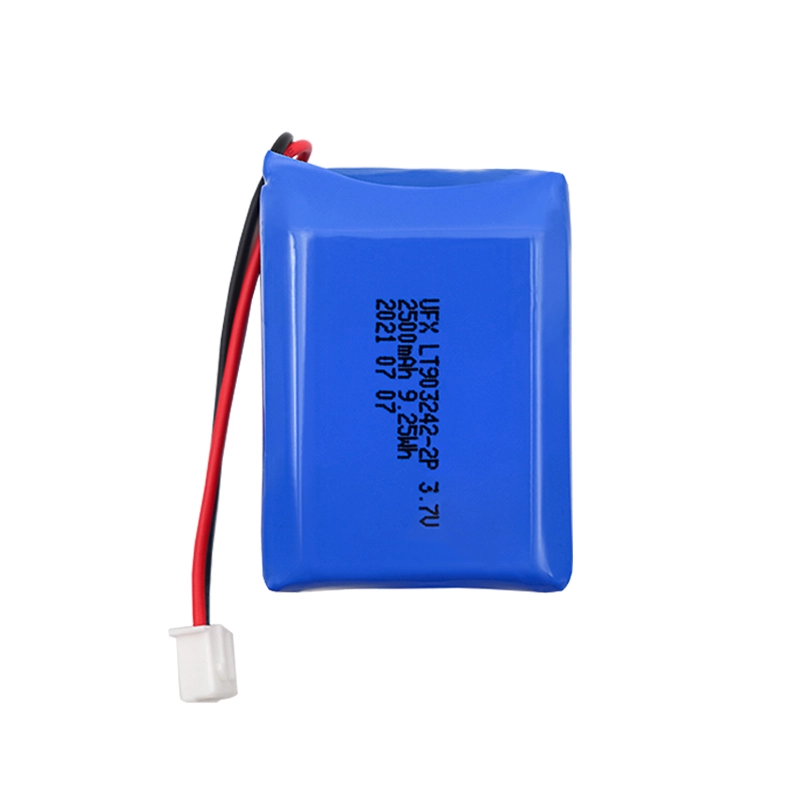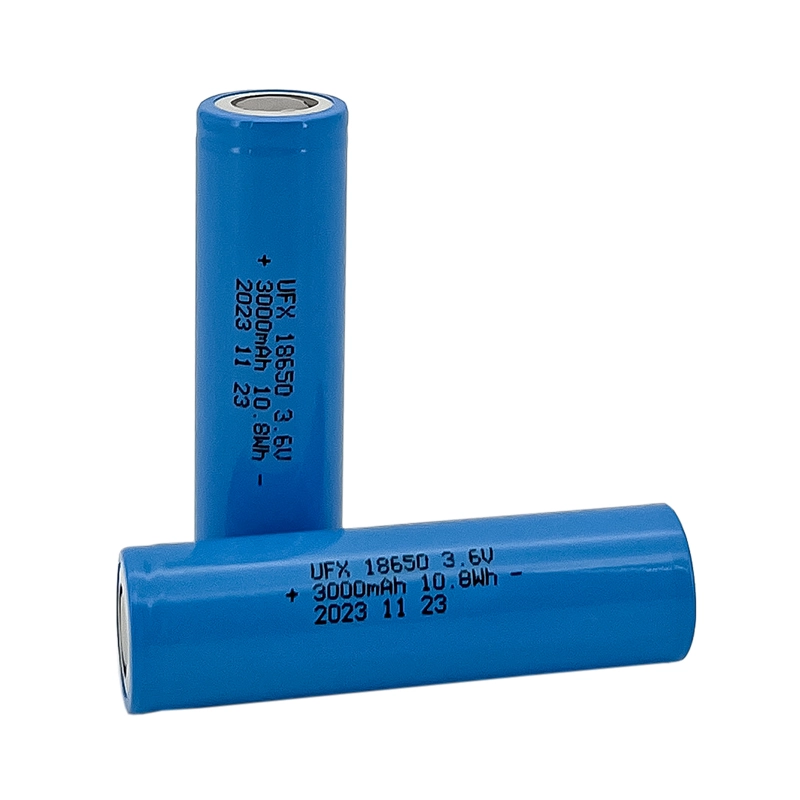-
Product Details
-
Specs
-
Capacity Fast Calculator
-
Application
-
Content
-
FAQs
-
Reviews

Product Details
Discharge Rate
Long Cycle Life
Ultra-Low Self-Discharge
Wide Temperature Range
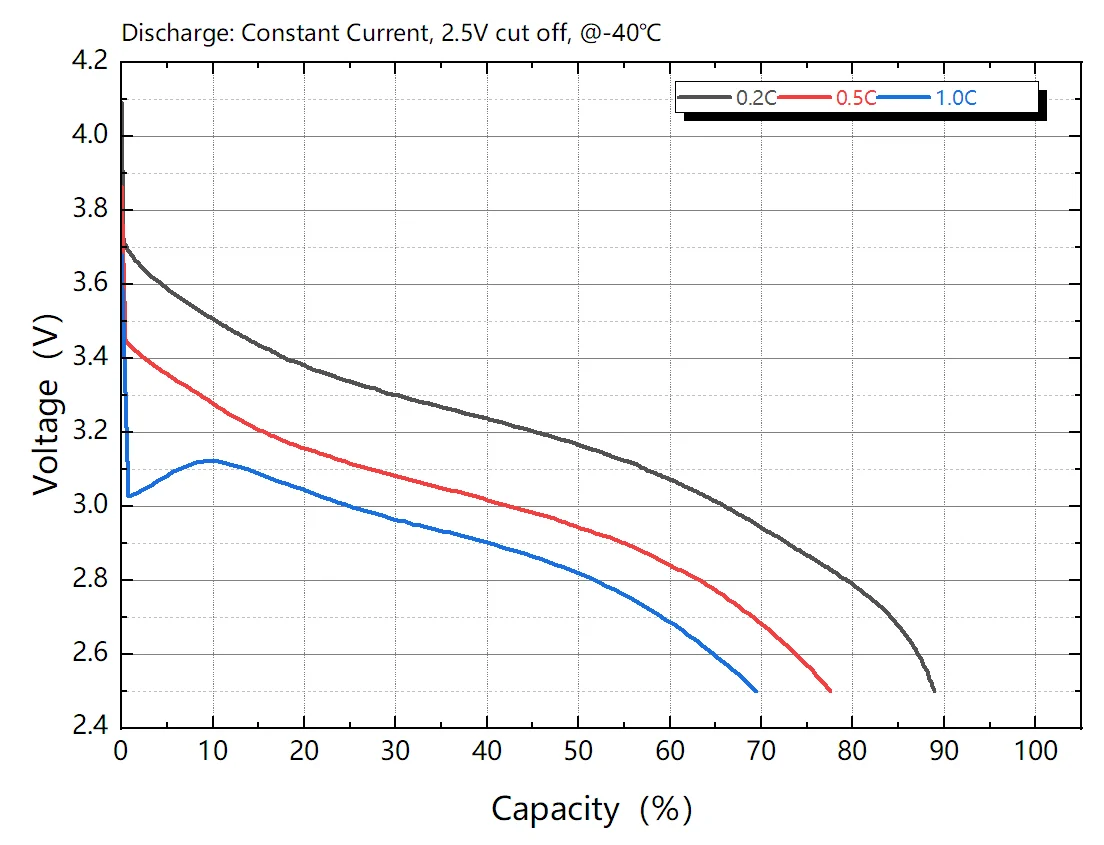
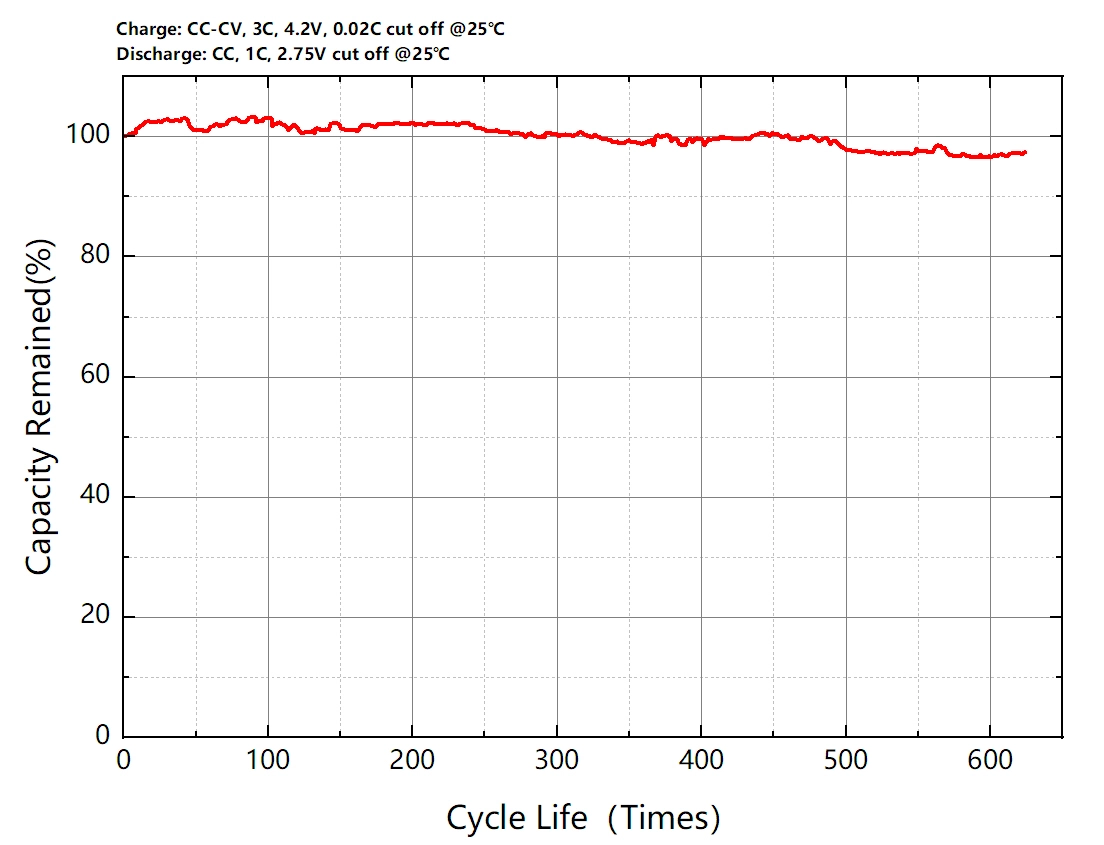
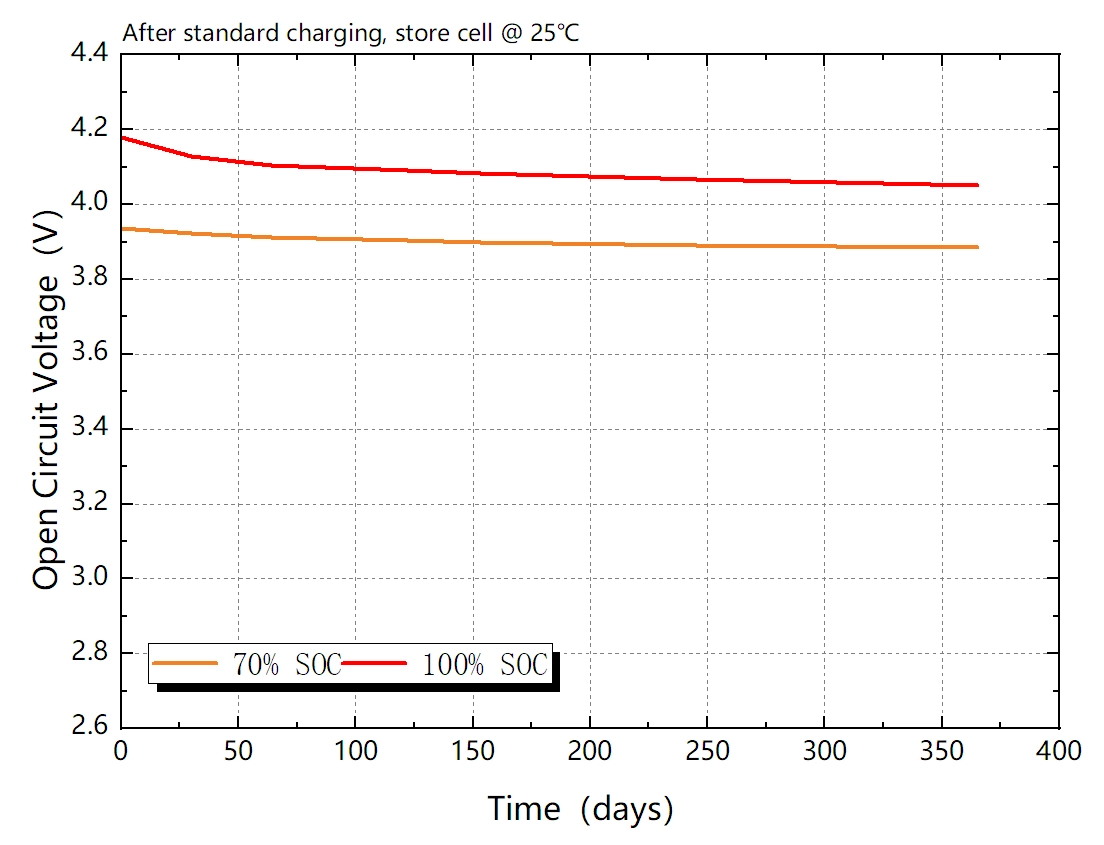
Self-discharge is higher at 100% state of charge (SOC) compared to 70% SOC.
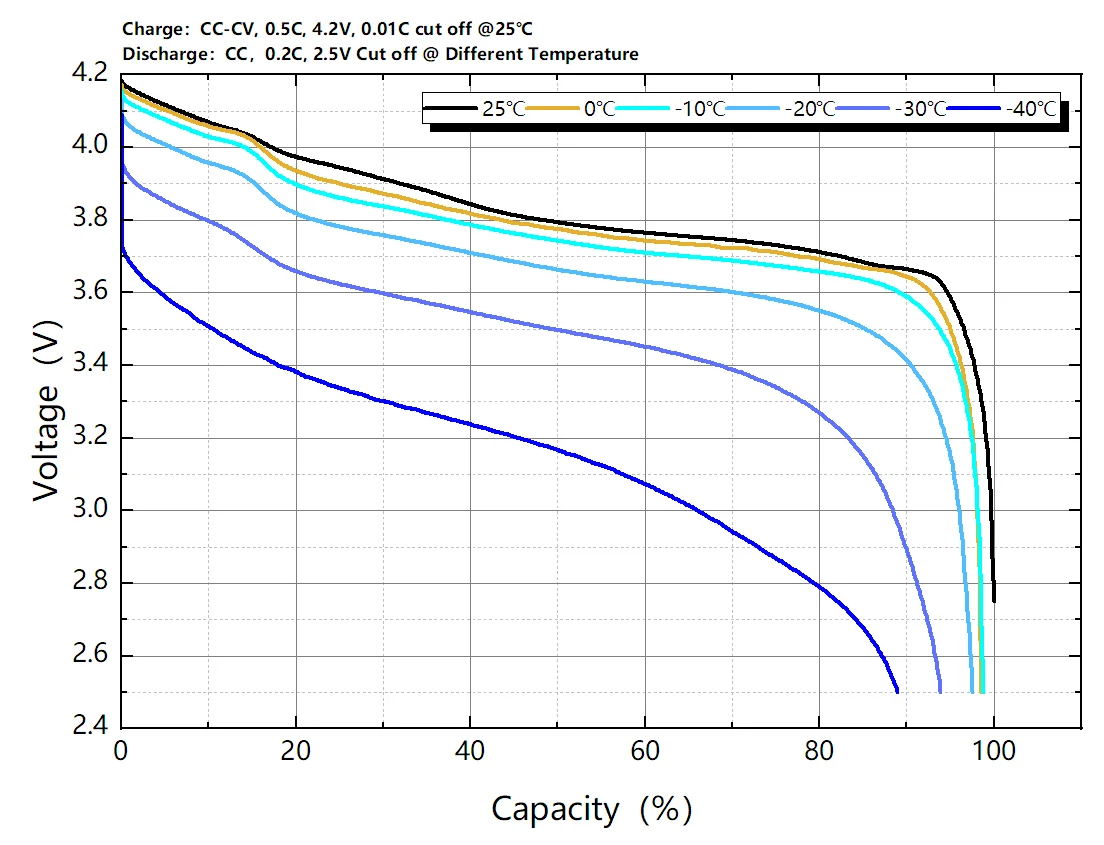
Ufine's custom low-temperature batteries can be used for -40°C to 55°C operation, catering to diverse outdoor scenarios.
Battery Quality Assurance
Rigorous testing pre-shipment guarantees that each battery complies with normal parameters concerning voltage, current, and charging and discharging data, ensuring optimal functionality in cold conditions.
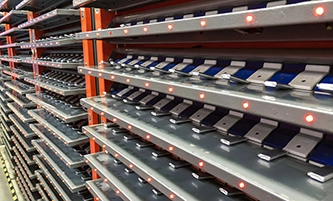
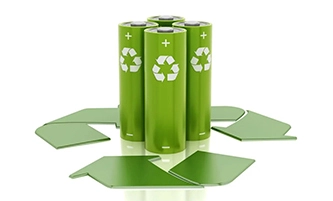
Environmentally Design
Utilizing A-grade battery cells, these leak-proof batteries maintain an environmentally friendly design, reducing ecological impact while providing reliable power support.
Applications
The battery is designed for use in various applications, including but not limited to outdoor electronics, smart home devices, emergency power banks, and mobile devices.
Battery Specification
-
1. Mechanical Characteristics
Cell 104050LT PCM Yes NTC No Weight appr. 39.4g Configuration 1S1P -
2. Electrical Specification
Capacity 2300mAh Nominal Voltage 3.7V Energy 8.51Wh Internal Resistance less than 150mΩ Max. Charge Voltage 4.2V Discharge Cut Off 2.75V Max. Charge Current 2300mA Max. Discharge Current 2300mA Standard Charge Current 460mA Standard Discharge Current 460mA Charging Temperature 0℃ to 45℃ Discharging Temperature -40℃ to 60℃ Storage Temp.Range 1 year at -20℃ to +30℃ 3 mos. at -20℃ to +45℃ 1 mo. at -20℃ to +60℃ Cycle life 100 cycles ≥92% 300 cycles ≥88% 500 cycles ≥80% -
3. Cell protection
Overcharge Detection 4.28V ±50mV (80 to 200msec delay, release 4.08V ±50mV) Overdischarge Detection 2.4V ±100mV (40 to 120msec. delay, release 3.0V ±100mV) Overcurrent Detection 2.5A to 4.5A (5 to 10msec. delay) Short protection Yes
Lipo Battery Cell Capacity Fast Calculator
Please enter your battery information to calculate the battery capacity and energy.
The capacity calculated by this tool is only an approximate value. If you need an accurate assessment, please contact our professional engineers.
3.7 V 2300mAh Low Temperature Battery Application
Low Temperature Battery For Camera
Engineered for photographers, our lithium camera batteries offer high-temperature resistance, allowing them to function optimally in varying climates. Their high energy density ensures a consistent power supply, which is crucial for capturing every moment without worrying about sudden power loss.

Low Temperature Battery For Action Camera
Engineered specifically for action photographers, our low-temperature lithium batteries are designed to thrive in diverse climates. With exceptional resistance to low temperatures, these batteries ensure optimal functionality even in challenging environmental conditions. Their high energy density guarantees a reliable and consistent power supply, addressing the critical need for uninterrupted power during action-packed moments. Capture every thrilling moment confidently, knowing that our low-temperature batteries for action cameras provide a dependable and enduring source of power.

The Complete Guide For 2300mAh 3.7 V Low Temp Li-ion Battery
A 3.7 V 2300mAh low temp li-ion battery serves as a crucial power source for various electronic devices. This guide delves into its components, functionalities, and best practices for optimal use.
Part 1. Advantages and Applications
The 2300mAh 3.7 V low temp li-ion battery offers a portable power solution with sufficient capacity for devices used in cold environments. Its versatility extends to applications such as heated wearables, ensuring prolonged warmth in freezing conditions, and outdoor gear like gps units, guaranteeing reliable navigation during winter activities.
Part 2. Technical Specifications
The 5200mah capacity denotes thefeaturing an 2300mAh capacity and 3.7 V output, this battery efficiently stores and delivers power. its low-temperature resilience ensures consistent performance in sub-zero environments, crucial for devices operating in extreme climates.
Part 3. Safety and Handling
This battery integrates protections against overcharging, over-discharging, and short circuits, ensuring safe operation in low-temperature settings. Proper storage and handling practices are essential to maintain safety and performance standards.
Part 4. Maintenance and Longevity
Adhering to recommended charge-discharge cycles, avoiding complete drains, and managing temperature controls significantly impact its lifespan. Routine checks and firmware updates optimize efficiency, extending the battery's longevity.
Part 5. Buying Guide and Recommendations
For reliable and customized solutions, consider sourcing your 2300mAh 3.7 V low temp li-ion batteries from ufine custom battery. Our commitment to quality assurance and tailored battery solutions ensures dependable performance for your specific needs.
FAQs
-
Can low temperature batteries be utilized in mobile applications or devices operating in cold climates?
Yes, these batteries are designed for mobility and can reliably power devices in cold climates, ensuring consistent performance. -
How does extreme cold affect the capacity and discharge rate of low temperature batteries?
Low temperature batteries are engineered to minimize capacity loss and maintain a stable discharge rate even in severe cold conditions. -
Are there additional safety features integrated into low temperature batteries for applications in cold weather?
Yes, our low temperature batteries include enhanced safety features to ensure stable operation and protect against issues like overcharging or thermal instability in cold environments. -
How long does it take to fully charge a lithium battery?
Charging time depends on the battery's capacity and the charger's current. For example, if the battery capacity is 4000mAh and the charger current is 2500mA, charging time = 4000mAh / 2500mA = 1.6 hours. -
How long do lithium batteries last?
Our lithium battery cycle life is more than 500 times. The lifespan of a lithium battery depends on various factors, such as usage patterns, charging and discharging conditions, and overall maintenance. -
Can lithium batteries be customized for specific applications?
Yes, lithium batteries can be customized to meet specific requirements. This includes customizing the battery capacity, voltage, size, shape, and other parameters to suit the application's needs. Capacity: 20mAh~12000mAh, Voltage: 3.2 V~48 V.
Reviews
High Energy Density
It stores large amounts of energy in a smaller and lighter package
Longer Cycle Life
Withstands extensive charge and discharge cycles
Low Self-Discharge
Maintains power longer when not in use
Safety
Minimizes the risk of accidents and ensures safe operation
Related Articles
About Lithium Battery Industry News

How to Choose the Best Floor Scrubber Battery for Commercial Cleaning?
Selecting the ideal floor scrubber battery ensures a long runtime, rapid charging, and minimal maintenance for efficient commercial cleaning operations.
2025-4-23 Ufine

Battery for Blower vs Battery for Leaf Vacuum: Which One Should You Choose?
Battery for blower vs leaf vacuum—learn the key differences in power, fit, and runtime to choose the right battery for your outdoor tool needs.
2025-4-23 Ufine

How to Choose the Right Battery for Blower?
Choosing the right blower battery? Consider voltage, capacity, chemistry & usage. This guide helps match the best battery for peak performance.
2025-4-22 Ufine
